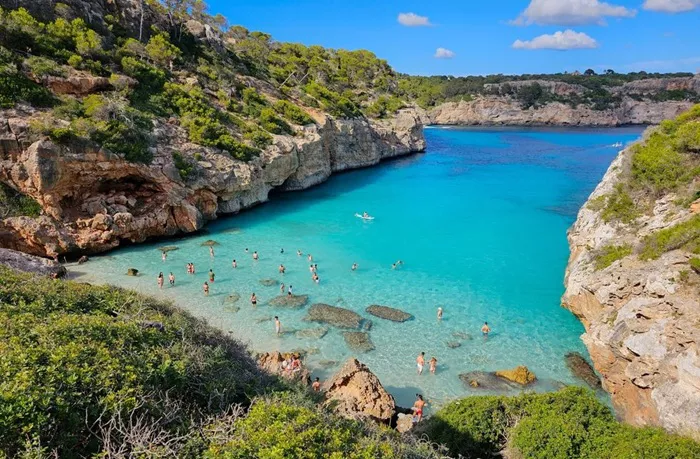UK tourists are increasingly canceling holidays to Spain and other European destinations in response to anti-tourism protests and growing tensions with local residents. The rise in public dissent, particularly in Spain, Italy, France, and Portugal, has been driven by frustrations over the effects of mass tourism on local communities.
Protest groups, such as the SET European Network Against Touristification, have been vocal about their opposition to the tourism industry. Elena Boschi, an English language teacher from the Italian Riviera, emphasized the urgency of reducing tourism, calling for “a path to tourism de-growth” to protect local infrastructure and housing markets.
“Our cities and regions are not for sale,” Boschi stated. “There is an urgent need to limit the growth of tourism and demand a change of course.”
This shift in sentiment has left many tourists feeling uncertain about their upcoming travel plans. In particular, UK travelers have been warned to consider canceling bookings as local governments in Spain, including regions like Tenerife and Lanzarote, grapple with mounting protests.
Tourism-related grievances have become a focal point for these demonstrations. Protesters argue that excessive tourism has led to inflated property prices, overcrowding, and a loss of cultural identity. The rise of short-term rental platforms like Airbnb has exacerbated these issues, with some locals accusing tourists of contributing to the displacement of residents.
Potential for More Protests This Summer
As the summer season approaches, experts predict that the protests are likely to intensify. Daniel Pardo, a representative of the SET Network, noted that each affected region will determine its own strategy for action. “There’s no one set approach—each area will decide how to take action,” Pardo explained.
The escalating tension has sparked a mix of reactions from the public. On social media, some UK tourists have expressed frustration with the situation, with one commenting, “Boycott these places. They don’t deserve our hard-earned money.” Others have pointed out the similarities between the issues faced in tourist-heavy European destinations and those in the UK, such as skyrocketing housing prices.
However, some voices have sympathized with the protesters’ demands, acknowledging the adverse impacts tourism has on local populations. One social media user remarked, “I understand their frustration. Unfortunately, not all visitors behave responsibly, which fuels resentment.”
Despite these challenges, UK tourists remain a crucial source of revenue for many European nations. Experts warn that scaring away tourists could have long-term economic repercussions, suggesting that local governments will need to strike a balance between addressing public grievances and maintaining a viable tourism industry.
Government Interventions and Travel Warnings
In response to the growing unrest, the Spanish government has taken steps to manage the influx of visitors. Warnings have been issued to tourists about the potential for disruptions, with some regions requesting that visitors reconsider their travel plans. Similarly, the UK Foreign Office has advised tourists to be cautious when visiting public spaces in some European countries, given the heightened risk of protest-related disturbances.
Despite these warnings, many UK travelers are holding out hope that the situation will improve, with some suggesting that the protests should be aimed at local governments, rather than tourists. As one social media user stated, “The protests should target the councils and national governments that control the tourism industry.”
As the summer season approaches, the impact of these protests on tourism across Europe remains to be seen. What is clear is that the relationship between tourists and local residents in popular destinations is reaching a critical juncture, and the coming months could be pivotal in determining the future of the tourism industry in these countries.

